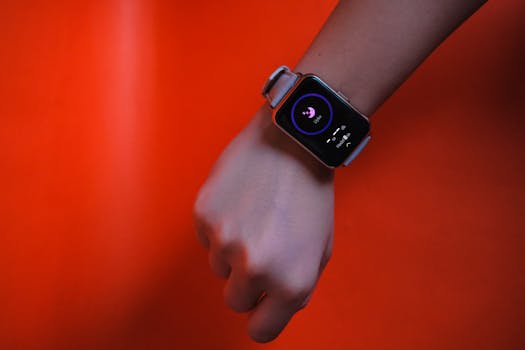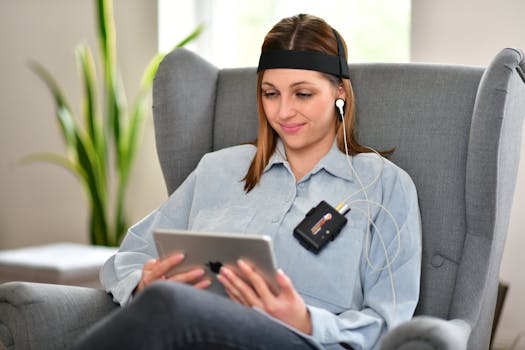
Table of Contents

- 1. Smart Home Devices
- 2. Health Tech Innovations
- 3. Personal Development Tools
- 4. Sustainable Technology
1. Smart Home Devices

In today’s fast-paced world, smart home devices have become essential for improving daily living. These devices not only provide convenience but also enhance security and energy efficiency.
Smart speakers like Amazon Echo and Google Home allow you to control various aspects of your home using voice commands. Imagine waking up to your favorite music while your coffee maker starts brewing automatically. Smart home systems can integrate lighting, heating, and even your home security system, ensuring comfort and safety.
Smart thermostats, such as the Nest Learning Thermostat, adapt to your schedule, helping you save on energy bills while maintaining a comfortable environment. Additionally, smart security cameras offer peace of mind, enabling you to monitor your home remotely through your smartphone.
Furthermore, smart kitchen appliances are revolutionizing the way we cook. Devices like smart ovens can adjust cooking times and temperatures automatically based on the recipe you choose. This technology not only saves time but also reduces food waste by ensuring meals are cooked to perfection.
2. Health Tech Innovations

Health technology has made significant strides in recent years, providing tools that empower individuals to take charge of their well-being. Wearable devices such as fitness trackers and smartwatches monitor vital signs, daily activity levels, and even sleep patterns.
Devices like the Fitbit and Apple Watch motivate users to stay active by setting daily goals and tracking progress. With features that monitor heart rate and stress levels, these wearables help you understand your body better and encourage a more active lifestyle.
Telehealth services have also emerged as a game-changer, allowing patients to consult with healthcare professionals from the comfort of their homes. With just a few clicks, you can schedule virtual appointments, thereby saving time and reducing the need for in-person visits.
Moreover, health-focused apps provide tailored nutrition plans and workout routines, ensuring you stay on track with your wellness goals. These innovations not only enhance health but also promote a holistic approach to lifestyle improvement.
3. Personal Development Tools

In our quest for self-improvement, technology offers a plethora of tools designed to enhance personal development. Apps focused on mindfulness, such as Headspace and Calm, help users manage stress and anxiety through guided meditation and relaxation techniques.
Additionally, productivity apps like Todoist and Trello facilitate better time management and organization. These tools allow you to set priorities, track tasks, and collaborate with others efficiently. By utilizing these technologies, you can cultivate a more productive and fulfilling daily routine.
Online learning platforms such as Coursera and Udemy provide access to a wide range of courses, enabling continuous learning and skill development. Whether you’re looking to advance your career or explore a new hobby, these platforms offer the flexibility to learn at your own pace.
Furthermore, journaling apps like Day One encourage reflection and personal growth. By documenting your thoughts and experiences, you can gain insights into your emotional well-being and set goals for the future.
4. Sustainable Technology

As awareness of environmental issues grows, sustainable technology has emerged as a vital aspect of lifestyle improvement. Innovations in renewable energy, such as solar panels and wind turbines, allow homeowners to reduce their carbon footprint and lower energy costs.
Smart appliances that optimize energy usage are becoming increasingly popular. For instance, energy-efficient washing machines and refrigerators not only save money but also contribute to a greener planet.
Additionally, electric vehicles (EVs) are transforming transportation, offering a cleaner alternative to traditional gasoline-powered cars. With advancements in battery technology, EVs now provide longer ranges and faster charging times, making them a practical choice for many consumers.
Lastly, apps that help users track their carbon footprint encourage more sustainable living. By monitoring consumption habits and suggesting eco-friendly alternatives, these tools empower individuals to make informed choices that benefit the environment.




